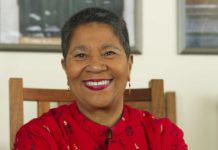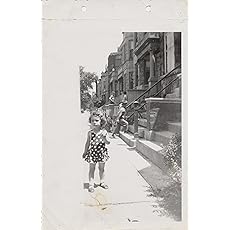The Consequence of Stars: A Memoir of Home
Spring 2019 from Adelaide Books, New York/Lisbon
Paperback now available.
$19.60
Buy on
Barnes and Noble
Buy on
Amazon
Read my Review below.
About the Book
THE CONSEQUENCE OF STARS is a unique and thoughtful
memoir on our eternal search for home. Told in a series of essays on love,
loss, travel, music, spirituality, and the joys of solitude,
memoirist David W. Berner, reaches deep to discover where he belongs and
ultimately where all of us belong.
A brief interview with the Author
David, what do you love about this book?
The book is so universal, I believe, to the human condition.
We are all seeking "home"—some place of our own, of peace and solace,
and great spirit. THE CONSEQUENCE OF STARS is a memoir in essays, each piece is
about finding home, whatever that may mean to all of us. It's part travelogue,
part memoir, part diary.
Share a couple of things you learned while researching this
story.
I learned, in a writerly sense, how to link essays, how that
is best done. But I also learned about myself, what's truly important to me.
Joan Didion once said, "I write entirely to find out what I'm
thinking." This very much was my experience. I have written several
memoirs prior to this book, and this has been true for all of them, but this
one particularly opened me up. I am so complicated. Aren't we all, really?
What do you hope readers will tell others when they’ve
finished the book?
I hope readers will see the connection between all of us in
the words of this book. We are more alike than we are different. That's an old cliché,
but clichés come from truth. And connectivity is a universal truth.
What are you reading now?
I'm re-reading a Jim Harrison novel, THE ENGLISH MAJOR. Love
this book. I'm also reading a book on Zen meditation, re-reading Kerouac's THE
DARHMA BUMS, and looking for a new book of essays to jump into.
What’s next?
I have a completed memoir manuscript about a season of
walking. It's done. But I'm so focused on THE CONSEQUENCE OF STARS release and
the work involved there, that I haven't really shopped it around yet. I'm also
working on a work of fiction.
About the Author

David W. Berner is a memoirist whose personal
stories tell all of our stories. His memoirs reflect on our
collective relationships and how those experiences link us to the world we
share. From stories of fathers and sons, to road trips, travel memoir, pets,
and music, David's books are mirrors of our common human experience.
Lisa's Review
David
W. Berner, author of Any Road Will Take
You There and There’s a Hamster in my
Dashboard, offers in his newest memoir a series of nineteen linked essays
traversing his childhood in Pennsylvania through early adulthood to
contemporary life. In this book, Berner tackles the idea of “home” through a
series of defining moments. The opening chapter is a revelation of what home
means, launching life from the safety and wonder of the front porch with
sleepovers, board games and plotting explorations of the neighborhood. “This is how one built a life in my
hometown. It’s what people did. They grew up in unexceptional little
neighborhoods, went to the same Sunday church services, attended the same
elementary, middle, and high schools, got jobs at the mills or the local banks,
bought homes near their parents, drank at the corner bar with their old high school
friends on Friday nights, and raised kids who would grow up and do it all over
again. For a time, I was moving straight down that path, doing what you’re
supposed to do.”
Berner’s first inkling of the meaning of home came at age
seven when he determined to run away. “Leaving home was supposed to evoke
sadness in the person being left behind”; a part his mother refused to play as
she cheerily waved him onward. A short trek through the safety of his concerned
neighborhood soon routed him back.
Exploring home takes Berner back to study the lives of his
parents, who never ventured far from their natal community. War time duty and a
stay in a tuberculosis sanatorium may have been enough adventure for the couple
who married and raised children near their extended family.
The essays feature themes of growing up, the gradual
realization that life is an ever-expanding bubble rapidly enveloping the
mysteries of “outside”; “things we don’t talk about,” such as the effects of
the Vietnam War to memories of the way we want to believe events unfolded
instead of how they truly happened. A look backward shows Berner the truths of
friends and family that no one can see in the moment.
“Life is a series of comings and goings,” Berner writes as
he prepares to leave for (not very far away) college. He was the “oddball”
thinker in a family of blue collar workers, destined for higher education. By
the time he was eighteen years old, he “understood that we must abandon our
homes to find our new ones, and leave our hearts behind in hopes that our souls
will be endlessly restored.”
Abandoning home eventually meant settling in the Chicago
area, 500 miles away where he lived in several different places in the second
reiteration of his life, that of a radio host. “I was the first in my family in
nearly a hundred years to leave” Pittsburgh, Berner says, evoking the first
tears he’d seen his father shed. Raising his family is a serial repeat of
watching lessons Berner learned as a child play out in his own children. Exotic
travel and instilling the sense that no matter how temporary the space, Berner
notes that a piece of self stays behind. “Leaving” is always undertaken with
the sense of “returning.”
Through a lifetime of experiences calling different places
home, from a writer’s retreat in Florida to visiting Europe to meeting a new
life partner and molding out a space of his own, Berner concludes, “It is by
leaving home we can heal best in order to return.”
“Home is what you carry with you. And in that spirit, I have
been transporting my home with me wherever I go.”
Lyrically written with earthy language, Berner shares
intimate details of a life seeking and understanding his own place “to be”; a
place of love and acceptance, a place to practice and grow and share himself. The Consequence of Stars is a call for
all of us to revisit our lives and reach for the elusive elements of what we
call home.
For my readers: drug use and coarse language.
![]()

![The Scheduler: A Howard Watson Intrigue by [JoAnn Fastoff, Lisa J Lickel]](https://m.media-amazon.com/images/I/51dsXE-ShQL._SY346_.jpg)







.webp)








